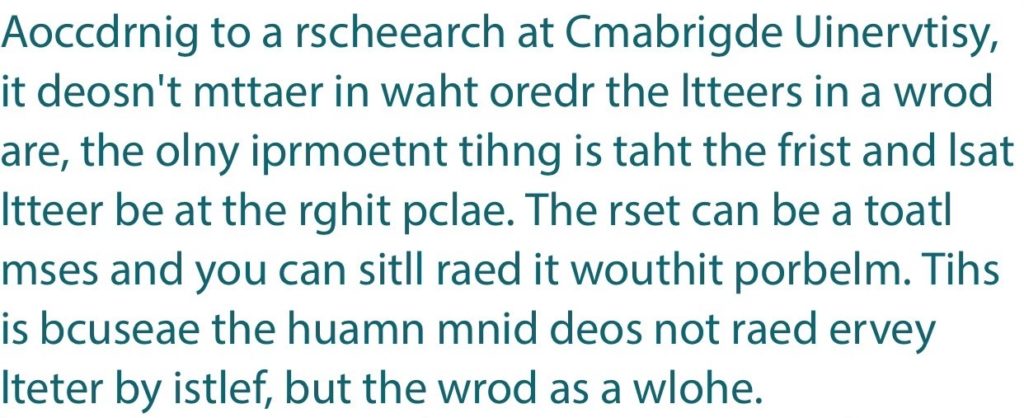- English is one of, if not the hardest foreign language to learn. There’s so many little things about it that are as though we’ve made them up as a sick joke.
- The solution? According to one guy, do what we’ve always done: crib some notes from other languages.
There’s no known way of saying an English sentence in which you begin a sentence with ‘in’ and emphasise it. Get me a jury and show me how you can say “in July” and I’ll go down on you.
Orson Welles (https://www.youtube.com/watch?v=V14PfDDwxlE)
English is an abstract kind of hell. It is an incredibly incestuous language that somehow managed to become the third most spoken in the world. It is the penguin of languages – you think it stands up straight when, in actuality, it spends its entire life squatting. Like Charles II of Spain, the most Habsburg to have ever Habsburged, it defies the heavens and earth by continuing to live.
There are many, many, MANY little things about English that make it one of, if not the hardest foreign language to learn, and chief among them is how we pronounce words. To someone learning English for the first time, it must be as though we make it up as a sick joke. We make five vowel letters spread across twenty or so vowel sounds.
Remember in school, where you learned something like, “‘an’ before letters that start with a vowel, ‘a’ that do not?” Who says, “A hour?” Or the h?
It’s one thing to listen to English – quite another to read it. My style of writing tends to let more italicised words seep through the cracks than is deemed appropriate by writers. They have a lot of use cases, and the one I use italics for most is explicitly pointing out emphasis. I recall a particular paragraph from my review of The Internet Con:
https://brologue.net/2023/12/31/users-arent-free-until-big-tech-is-wee
In the trivial sense of the truth, yes, antitrust laws were necessary to protect consumers from being harmed by ‘bad’ monopolies; in the fundamental sense of the truth, antitrust law was never about breaking up all monopolies.
In so small a snippet, we’ve got English trickery out the wazoo. I’ve used both scare quotes and italics for emphasis (and irony). But the real crime italics commit is not, as some fiction writers would tell you, telling the reader how to read – it’s the irony of said emphasis not making it remotely clear what sounds in the word should be stressed. Changing where a word is stressed can change its definition and or meaning entirely (“They don’t speak English – it’s more English“).
Here are four English words – the lingo used by linguists is ‘homographs.’ Please tell me what they mean. You should be able to solve this:
Present
Present
Present
Present
Got your answers? Let’s just check it with Bully… Oh, fiddle-de-dee. No, Present #1 did not mean ‘Something you give to someone else as a show of gratitude!’ That’s the gamble. Have a look at what you could’ve won:

State-of-the-art DJ mixer. It does a mean moog:
https://www.youtube.com/watch?v=zfDJ3jFS0-M
Recently, I’ve been learning Spanish, and one of my burning questions when I started was why some words have an acute accent when others do not. Turns out that they’re like a failsafe for pronunciation, both written and spoken1. By default, the penultimate vowel sound of any Spanish word is the only one that is stressed. When a different vowel sound needs to be stressed instead, we adorn it with an acute accent.
In Spanish, stress is explicit. In English, it is not.
I can’t put a number on it, but I’m quite confident in asserting that most English-speaking journalists have produced at least one article on our language’s orthography in their careers, for or against its bureaucracy. It’s a sticking plaster for stickly opinions that make for great critical reading questions in exams2. By the same token, if that’s a sticking plaster, then anything to do with how teenagers text is Gorilla glue.
There’s nothing about English orthography or grammar that makes them remotely pedantic, but, just so everyone’s on the same page, we like to pretend otherwise. Observing our use of language in the present, the rate of change in how we write, spell, and pronounce words appears to rival continental drift. Yet for most of the English language’s history, it has constantly shifted. The only thing that has mostly stayed the same are the letters we use (R.I.P. þ).
You think English is bad? Try romanising Mandarin. Previously, I made a post about a friend of mine, Plague von Karma, one of the brains behind the Kanto Expansion Pak. She’s studying to teach English as a foreign language in China:
https://brologue.net/2024/01/09/this-is-just-a-tribute/
Most Sinitic romanization systems need an expansion pak of diacritical marks just to get started. The same sound in Mandarin can be stressed in five different ways to produce different words:
https://en.wikipedia.org/wiki/Standard_Chinese_phonology#Tones
Which allows for interesting tongue-twisters like this:
Without those marks, trying to guess at the following phrase is a game of Russian roulette:
min yi shi wei tian
This happened to PvK in a book that I’d recommended to her by proxy (I was trying to find sources on epistemic anxiety and came across something I thought’d be useful for her ULTIMATE RESEARCH DOCUMENT). Fortunately there was a transliteration for her to work her way backwards. Let’s add the marks back in:
mín yǐ shí wéi tiān
If you know how to read Hanyu Pinyin, and can read the original characters, you’ll know that I’m referring to a well-known Chinese idiom: 民以食為天 (simpl. 民以食为天, lit. “For people, food is next to heaven” – or, referring to government, your administration is only as robust as the food on our plates).
Heer’s wehre us niatve Egnslih sepakrs relaly mkae it up. Tehre’s an iagme I keep seneig form Tory Skotoba (who konws his suftf aoubt pcitrue tehroy) epxsonig how we cgoznie pitcure txtes:

Well, perhaps we don’t ‘make it up,’ as such, and ours is not the only language where this phenomenon has been observed, and still the fact remains: English makes a lot of sense(!)
If English lacks explicit systems for discerning stress and homographs (among other things), why don’t we do what English has always done and crib some notes from other languages? That’s the gist of an excellent video from RobWords that PvK posted to our group last week:
It’s certainly an ambitious project: “Let’s make English easier to read without spelling reforms.” It’s not without its flaws, either. It’s much slower to write; even if someone came up with a keyboard layout that made these accented letters easy to type (maybe one extra key for each rule?), it’s still going to be much slower to type in comparison to standard English. Then again, perhaps autocorrect can be of help here.
I should reiterate that this solution would effectively make English a language where every word is pronounced in the same way that it is spelled. It would not affect English’s syntax, semantics, or pragmatics. It’d just make it easier to read pronunciation. “In July” would still sound odd.
Rōsebud Frōzėn Pēas. Fūll ȯf cȯuntry goodness and grēēn pēaness. Wāīt, that’s tērriblė. I quit!
Orson Welles, convincingly played by Maurice LaMarche (https://www.youtube.com/watch?v=IH1PJTY9AVA)
I can’t say I’m not seeing the language I’ve always spoken with new eyes. It’s a work in progress…
- This is not the only purpose of diacritical marks in Spanish – similar to French, they are sometimes used to disambiguate homonyms – either homographs, where a single spelling has multiple definitions; homophones, where two different spellings have the same pronunciation; or both. For example, when we read el in Spanish, we know that’s the definite article for a male object. If we were to instead read él, that is the male pronoun. ↩︎
- Nearly every critical reading past paper or exam I took in school was taken from The Guardian. I seem to recall one article reflecting on a change in how we spell – I can’t recall if it was about texting, or the way some of us have Americanised our spelling (e.g. using -ize instead of -ise, contrary to what I’ve just done), but it was lamenting something. ↩︎
